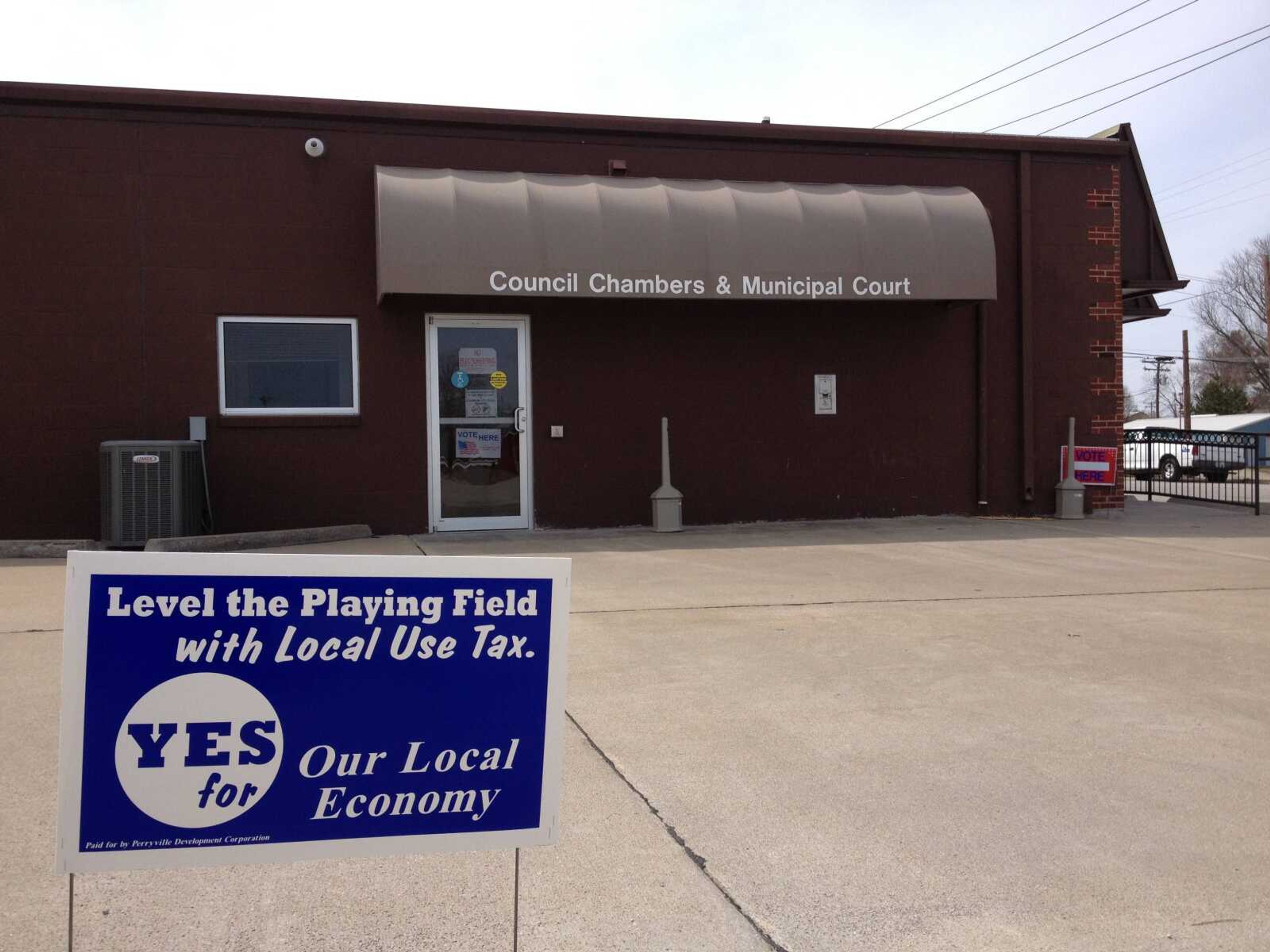Many voters confused, uninformed about use tax
Local governments trying to recoup lost sales tax on out-of-state purchases were hoping voters would see things their way on Tuesday, but in at least one county, the tax was confusing to many who visited the polls early. Use tax measures in Scott, Perry and Bollinger counties and in Perryville...
Local governments trying to recoup lost sales tax on out-of-state purchases were hoping voters would see things their way on Tuesday, but in at least one county, the tax was confusing to many who visited the polls early.
At Broadway United Methodist Church in Scott City Tuesday morning, several voters exiting the polls said the use tax measure on the Scott County ballot was confusing.
Eight voters, all of whom did not want to be identified, said they voted against it because they didn't understand it or hadn't heard about it before going to the polls. One man said he already felt he was "taxed enough." Others said they were just not sure what it meant.
The ballot measures were created as a reaction to a Missouri Supreme Court decision that changed the way local counties and municipalities could collect taxes on vehicles. Until that time, no matter where a person bought a car, sales taxes were paid on it at registration according to the local rate associated with the buyer's home address. The ruling said that local sales taxes could not be levied on out-of-state purchases of motor vehicles, trailers, boats and motors. Since then, only the state use tax of 4.225 percent has been levied in areas with no local use tax.
Acording to estimates by the Missouri Department of Revenue, Scott County stood to lose $136,000, Perry County would lose more than $117,000 and Bollinger County would take in about $57,000 less in taxes from vehicles sales due to the change in the law.
The proposed use taxes equaled the local sales tax rate. In Scott County, a 1 percent use tax was proposed, in Perry County and, separately, in Perryville, the rate was 1.875 percent and in Bollinger County, the rate was 1.625 percent. Each ballot measure noted that if any local sales tax was repealed, reduced, or raised by voter approval, the respective local use tax also would be subject to the same action.
Use taxes only come into play when purchases are made outside the local taxation area. Material distributed by Bollinger County commissioners in town-hall-type meeting to educate voters said the use tax "replaces the local sales tax that is lost on goods or material that are purchased out-of-state -- anything from steel to lumber, computers to fax machines, chemicals to sheet rock, or office furniture to loading ramps." Consumers have long been able to save on sales taxes when buying items out of state. Taxes are not collected on many purchases made on the Internet when the buyer is located in a different state than the seller. The use tax measure in all three counties and in Perryville stipulated that taxes would not be levied unless purchases from out-of-state vendors exceeded $2,000 within the calendar year, exempting most individuals who make occasional purchases from the tax.
Though Cape Girardeau County was estimated to potentially lose about $250,000, the issue was not added to the April ballot. Cape Girardeau County narrowly voted down a 0.5 percent use tax proposal in 1996 by 3,348 votes to 3,127. At that time, Presiding Commissioner Gerald Jones said he felt the issue may not have been well-understood at the polls, as the tax would not have affected the "general populace."
A bill advanced by Sen. Mike Kehoe, R-Jefferson City, would allow local sales taxes -- instead of use taxes -- to be levied on vehicle purchases. It has been taken up for a third reading in the House. Cities and counties that have not received voter approval for a local use tax would have to ask voters to weigh in at an election between November 2014 and November 2016. The tax would be discontinued on out-of-state purchases if a simple majority voted to repeal it. Gov. Jay Nixon has blocked previous efforts, citing concerns about reinstating a tax without a public vote.
Look for more on this story later, including results of the voting, at www.semissourian.com and in Wednesday's Southeast Missourian.
salderman@semissourian.com
388-3646
Pertinent address:
1400 Broadway, Scott City, MO
Connect with the Southeast Missourian Newsroom:
For corrections to this story or other insights for the editor, click here. To submit a letter to the editor, click here. To learn about the Southeast Missourian’s AI Policy, click here.










